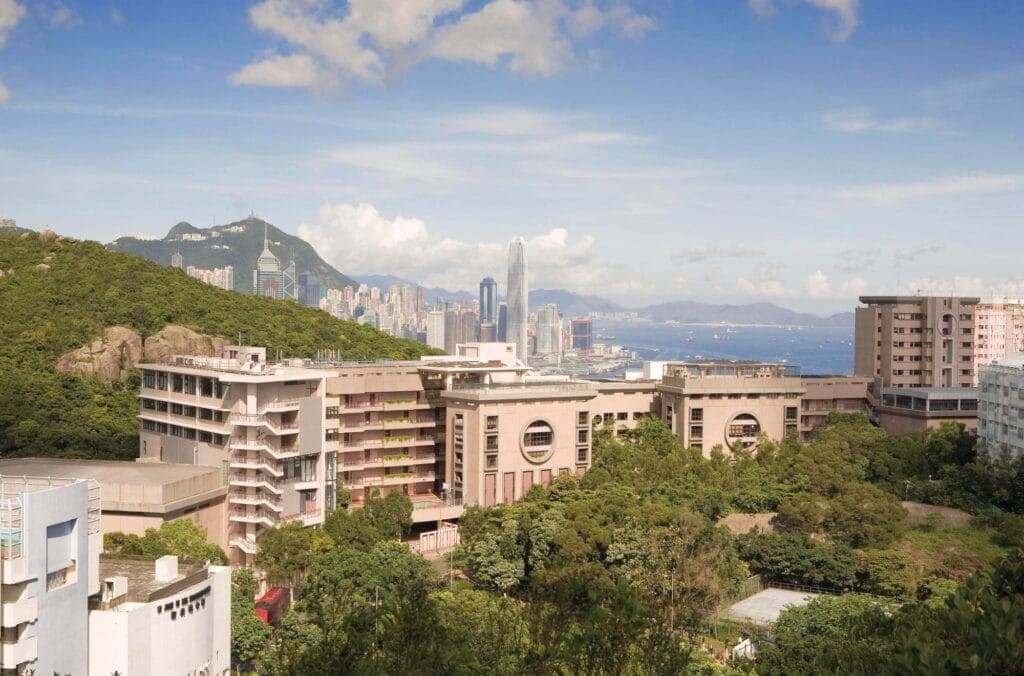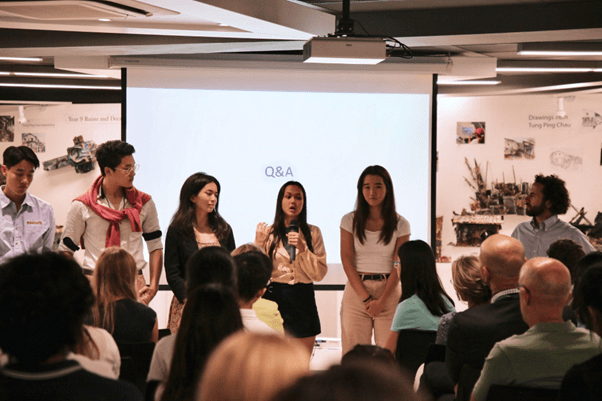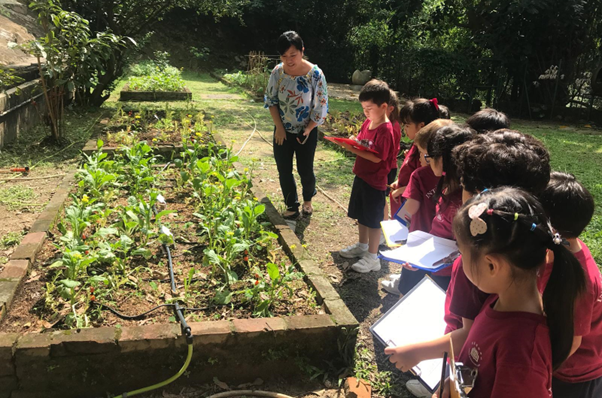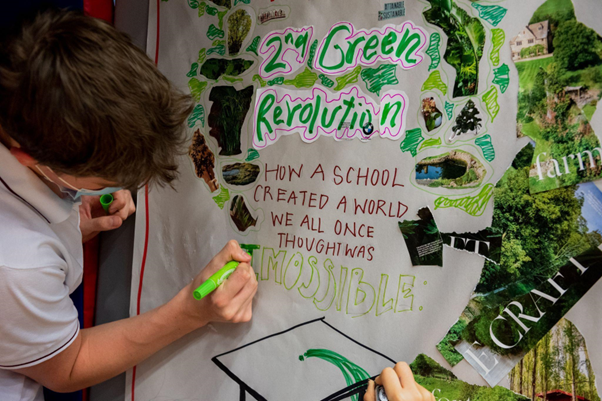
In 2019, CIS took its first steps to propel sustainability to the top of its agenda. The driving force? A student-led and expert-guided Whole School Sustainability Audit for the 2019-2020 school year. By joining forces with Metanoia, a sustainability consultancy specialising in working with schools, CIS opened a window to the future, paving the way for more sustainable practices and, eventually, the prospect of achieving carbon neutrality. Students working with Metanoia at the time hoped the report would spark conversations for years to come— and it did.
From energy and travel to governance and decision-making, each area of CIS’s operations was carefully considered. In addition to assessing CIS’s environmental impact, the audit intended to offer a more systematic approach, allowing the school to better structure its sustainability efforts.
Fast forward to 2022: three years and one pandemic later, five classmates and I were flipping through that very audit as part of our summer internship with Metanoia. Though I had heard about the audit on multiple occasions, this was my first time reading it— the whole 300-page report— in full. Guided by sustainability consultants at Metanoia, my fellow interns and I examined the report, going through each chapter to discover the different (but often interconnected) components of CIS’s carbon footprint.
By shining a spotlight on our school’s operations, the audit provided a snapshot of sustainability at CIS. More importantly, though, it represented a collective effort from students at CIS. In the report, one of many statistics was the amount of food waste the school produced annually. This number was the outcome of a five-day audit where students and Metanoia staff monitored food waste practices, measured daily amounts of food waste and even spoke to students regarding their eating habits and attitudes towards food waste.
This behind-the-scenes work is why we— students at CIS today— have a benchmark from which to judge our progress. Of all that I gained from the internship (a valuable experience, for one, and the ability to quantify sustainability at CIS), my biggest takeaway was that sustainability is a journey. The journey doesn’t end with the audit but rather begins with it; it’s up to students now, today, to take up the baton and bring this work forward with the support of the school community and the ongoing technical guidance from Metanoia.
When I returned to school after the summer holidays, one of the first things I did was join Drop In The Ocean (DITO), CIS’s student-led environmental group. As someone who has always been passionate about sustainability, I saw this as a way to further my interests, make my voice heard and carry on the work of the previous student leaders. As my first project with DITO, I (alongside a few of my peers) delivered a presentation to CIS’s Land and Building Committee of the Board of Governors detailing CIS’s pathway to decarbonisation.
Decarbonisation feasibility study
Our launching pad for this project was Metanoia’s 2021 Decarbonisation Feasibility Study for CIS. Understanding this report— which included emissions reduction strategies, scenario modeling, and carbon offsetting information—initially seemed daunting. With Metanoia’s help, however, we began to develop a structure for the presentation, organizing the information we had to make the presentation as effective as possible.
Throughout this process, we leaned on Metanoia for expertise and guidance, consulting the team on everything from statistics and technical details to presentation and public speaking skills. As our presentation took shape, we began extending beyond the report, adding additional information to make it more relevant to CIS’s progress today. Our final presentation— the product of many run-throughs and practice Q&A sessions with Metanoia— was one that we were genuinely excited about and proud of. Reflecting on the experience now, I remember feeling capable, confident, and grateful to (as a student) be able to teach the board something new.
Our experience delivering this presentation was a true demonstration of student agency and voice. By spreading awareness of sustainability, leading initiatives we are passionate about and, of course, learning continuously on the way, students like me have been able to put our words into action and make tangible change. As our principal, Mr Lynch said in his ISC Research article, “the agency of our students is an unstoppable force for good. It will save our planet.”
While this next leg of CIS’s sustainability journey will be carried on by students today, it was set up by students three years ago. The very students who collected data on food waste back in 2019 are the ones that continue to inspire us today. As the next generation of leaders, students at CIS (myself included) are bringing their ideas to life. Looking at the plethora of initiatives we have today—from kayak cleanups to upcycling workshops to environmental advocacy across Hong Kong— I think it’s safe to say that they would be proud.
And of course, there’s much more to come. The 2019-2020 audit included a list of over 100 recommendations for CIS; as of August 2022, 7 of these have been implemented and another 42 are in progress. Moreover, Mr Lynch’s participation in the Carbon Literacy Course (taught by Metanoia to 22 CIS students and several members of faculty) has made CIS a Bronze Level Carbon Literate Organisation— the first school to receive this distinction outside of the UK.
Solar facade installation and our road to net-zero
Since the audit, momentum has only grown. By Christmas next year, CIS’s new solar façade— an extension of the existing rooftop installation— will start producing low-carbon electricity. At 152kWp, this new solar array will not only be much larger than the school’s existing one, but will also be the first solar installation on a school wall anywhere in Asia. By providing 120 MWH p.a. of energy, the installation will account for 4.5% of our school’s annual electricity consumption and reduce the electricity bill by approximately 10%.
Our school’s bold push for sustainability has turned it into a trailblazer and, hopefully, a role model for other schools. CIS’s journey towards sustainability perfectly embodies the word “metanoia”— greek for “a transformation of heart and mind leading to a change in behaviour”.
By journeying along the pathway to net zero, CIS has committed itself to a sustainable future and will evolve as our buzzing community continues the push for change. As a student, I can’t wait to see what’s next— soon, I’m sure CIS will transform into the sustainable school I imagine today.


